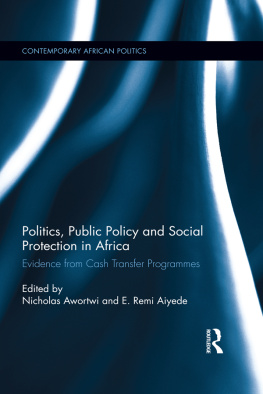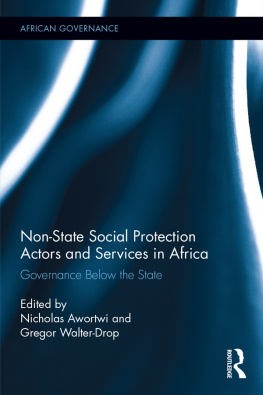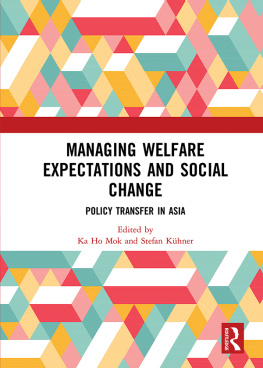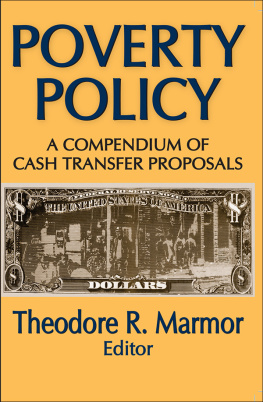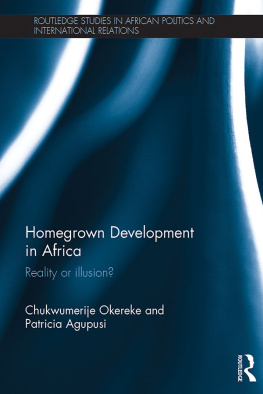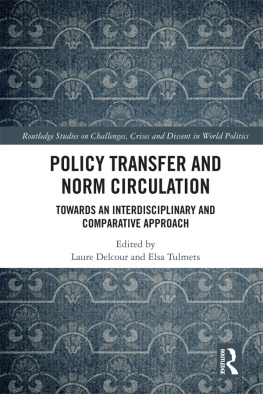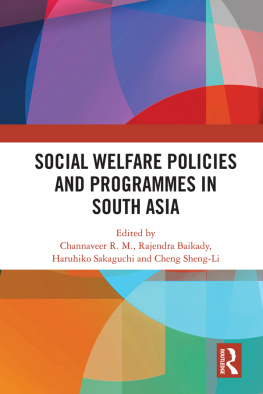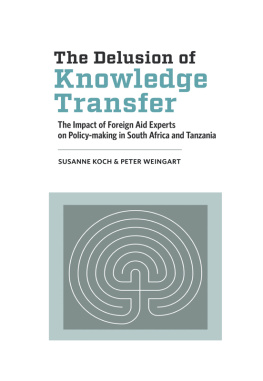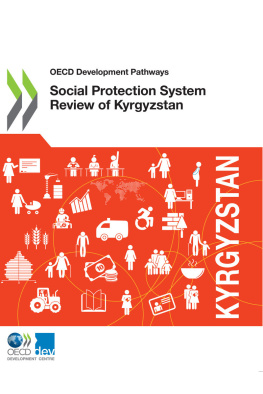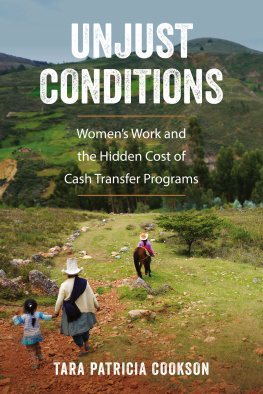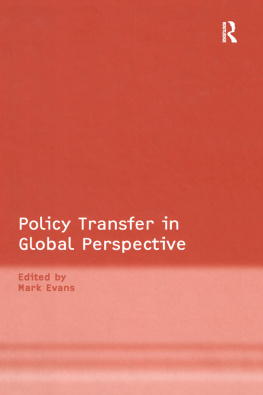Politics, Public Policy and Social Protection in Africa
Africa is now in a much-improved position to support its poor and vulnerable people. It has more money, more policy commitment and abundant intervention programmes. Yet the number of citizens living lives of desperation, or at risk of destitution, is at an all-time high, and still rising. What is turning such positive prospects into such a disappointing result?
Politics, Public Policy and Social Protection in Africa reveals key answers, drawing on empirical studies of cash transfer programmes in Botswana, Ghana, Kenya, Nigeria and Uganda. Social cash transfer might be the most effective safety net formula to emerge so far. The country chapters in this book explore why it works and how it might be harnessed for poverty alleviation. The studies uncover the very different motives of donors, politicians and the poor themselves for making it their preferred choice; why governments are not expanding the donor-driven pilot programmes as expected, and why ruling elites are not trying to help or hinder a concept which, on the face of it, could derail one of their most lucrative gravy trains.
This book will be of value and interest to researchers and students of African politics, African social policy and sociology, as well as policy maker and donors.
Nicholas Awortwi holds PhD (cum laude) from the International Institute of Social Studies (ISS) of Erasmus University and is currently the Director of Research for Partnership for African Social and Governance Research (PASGR), Nairobi, Kenya.
E. Remi Aiyede is Associate Professor, Department of Political Science, University of Ibadan, Nigeria.
Contemporary African Politics Series
1 Ethnicity, Democracy and Citizenship in Africa
Political Marginalisation of Kenyas Nubians
Samantha Balaton-Chrimes
2 African Youth Cultures in a Globalized World
Challenges, Agency and Resistance
Edited by Paul Ugor, Lord Mawuko-Yevugah
3 State, Land and Democracy in Southern Africa
Edited by Arrigo Pallotti and Corrado Tornimbeni
4 Reinventing Development
Aid Reform and Technologies of Governance in Ghana
Lord Mawuko-Yevugah
5 The Horn of Africa Since the 1960s
Local and International Politics Intertwined
Edited by Aleksi Ylnen and Jan Zahorik
6 Politics, Public Policy and Social Protection in Africa
Evidence from Cash Transfer Programmes
Edited by Nicholas Awortwi and E. Remi Aiyede
First published 2017
by Routledge
2 Park Square, Milton Park, Abingdon, Oxon OX14 4RN
and by Routledge
711 Third Avenue, New York, NY 10017
Routledge is an imprint of the Taylor & Francis Group, an informa business
2017 selection and editorial matter, Nicholas Awortwi and E. Remi Aiyede; individual chapters, the contributors.
The right of Nicholas Awortwi and E. Remi Aiyede to be identified as the authors of the editorial material, and of the authors for their individual chapters, has been asserted in accordance with sections 77 and 78 of the Copyright, Designs and Patents Act 1988.
All rights reserved. No part of this book may be reprinted or reproduced or utilised in any form or by any electronic, mechanical, or other means, now known or hereafter invented, including photocopying and recording, or in any information storage or retrieval system, without permission in writing from the publishers.
Trademark notice: Product or corporate names may be trademarks or registered trademarks, and are used only for identification and explanation without intent to infringe.
British Library Cataloguing-in-Publication Data
A catalogue record for this book is available from the British Library
Library of Congress Cataloguing-in-Publication Data
Names: Awortwi, Nicholas, editor. | Aiyede, Remi, editor.
Title: Politics, public policy and social protection in Africa : evidence from
cash transfer programmes / edited by Nicholas Awortwi and E. Remi Aiyede.
Other titles: Contemporary African politics series ; v. 6.
Description: New York : Routledge, 2017. | Series: Contemporary African
politics series ; v. 6 | Includes bibliographical references and index.
Identifiers: LCCN 2016055731 | ISBN 9781472486523 (hardback) |
ISBN 9781315179599 (ebook)
Subjects: LCSH: Economic assistance, DomesticAfrica, Sub-Saharan. |
Transfer paymentsAfrica, Sub-Saharan. | Public welfareAfrica, Sub-
Saharan. | Africa, Sub-SaharanEconomic policyCase studies. | Africa,
Sub-SaharanSocial policyCase studies.
Classification: LCC HC79.P63 .P65 2017 | DDC 339.522dc23
LC record available at https://lccn.loc.gov/2016055731
ISBN: 978-1-4724-8652-3 (hbk)
ISBN: 978-1-315-17959-9 (ebk)
Typeset in Times New Roman
by Apex CoVantage, LLC
Contents
NICHOLAS AWORTWI
FREDRICK O. WANYAMA AND ERICK O. NYAMBEDHA
AMA DE-GRAFT AIKINS, SEIDU ALIDU, ELLEN BORTEI-DOKU ARYEETEY, GEORGE DOMFE AND RALPH ARMAH
EMMANUEL REMI AIYEDE, PAM DUNG SHA, EMMANUEL OLAWALE OGUNKOLA, BONAVENTURE HARUNA, AKINPELU OLANREWAJU OLUTAYO AND EZEKIEL BEST
MARGARET ANGUCIA AND MESHARCH W. KATUSIIMEH
EMMANUEL BOTLHALE, MOGOPODI LEKORWE, BAAKILE MOTSHEGWA AND BASHI MOTHUSI
NICHOLAS AWORTWI
The great surge in official social protection regimes and efforts in most African countries occurred about two decades ago in response to the effects of structural adjustment programmes initiated by African governments working together with the International Financial Institutions to mitigate the effects of the programmes and address the increasing vulnerabilities of many of their populations. With rapidly changing economic and social conditions that increase vulnerability and expose more people to poverty and misery, social protection becomes an integral part of development and development policy.
Yet in many countries in Africa, less than 10 per cent of the working population has access to any form of State social protection. In a context where poverty, deprivation and vulnerability are so prevalent, the need for extensive social support is particularly high, but social protection services have had little policy traction until recently. Over the past decade, international donors and partners have pressed and subsidized governments to introduce cash transfer programmes, which are now emerging as an effective instrument for reducing vulnerability and promoting economic inclusiveness; although it must be emphasized that cash transfers are only one instrument of social protection.
Hitherto, the International Monetary Fund and the World Bank have been reti-cent about extensive welfare programmes. But there are many stakeholders in Africas social policy terrain who argue that extensive assistance to all vulnerable people including universal old-age pensions, child and disability benefits is affordable if governments so choose. Indeed, such provision would require circa 3 per cent of gross domestic product (GDP) or about 35 per cent of the national annual budget. As this book shows, governments are committing less than 0.5 per cent of their budgets to direct support of the most vulnerable; development partners are substantially funding the cash transfer programmes.
So the questions are: what strategy will work to secure and sustain the concept of 3 per cent of GDP for social protection? Is this viable, affordable and sustainable? Who will make that decision? Why will they make that decision? What is preventing them from making that choice now, and what will encourage them to make that choice soon?

